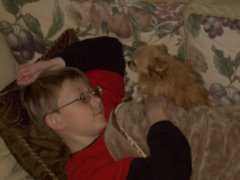Literary Criticism and Fiction
Vocabulary:
The Canon
Speaker/narrator
Characters (Major, main, round (characters that change/develop), flat (characters that are unchanging and predictable), stereotypes.
Setting, time and place
Figures of speech/figurative language (language that creates connections between our ideas and senses)
Simile ("eyes as blue as the sky")
Metaphor ("his intellect was as big as a comfy couch")
Extended metaphor, detailed and complex metaphor
Symbol (puts two things together that might normally seem unrelated)
(rose, flag)
Archetypes ("literary elements that recur in cultural and cross-cultural myths")
Allegory ( an extended symbol used throughout an entire work)
A Myth can be a story when there is an allegorical or symbolic connection.
Theme (the central idea of a story) message
BRING IT ALL TOGETHER and analyze
Focus (the viewing aspect)
Voice (the verbal aspect of the focus)
Several focal characters=unlimited point of view
1st person ("I"), sometimes an audience within the fiction is an "auditor"
3rd person (he, she)
3rd person omniscient=unlimited access to thoughts of several characters
Centered or central consciousness
Persona (the voice or figure of the author who designs the story)
Plot (the arrangement of the action)
-conflict(exposition, rising action, a discriminating occasion, a turning point/climax, then a falling action, leading to a conclusion.)
-expectations
-structure (the order of events provides the structure and plot)
-flashback (Sonny's Blues)
STORIES to Review:
"The Elephant in the Village of the Blind"
"20/20", by Linda Brewer
"Cathedral" by Raymond Carver
"Sonny's Blues" by James Baldwin
"The Cask of Amontillado" by Edgar Allen Poe
"Hills Like White Elephants" by Ernest Hemingway
"Why I Live at the P.O." by Eudora Welty
"Bartleby the Scrivener" by Herman Melville
"A Pair of Tickets" by Amy Tan
"Young Goodman Brown" by Nathaniel Hawthorne
"A Souvenir of Japan" by Angela Carter
"The Management of Grief" by Bharati Mukherjee
"A Good Man is Hard to Find" by Flannery O'Connor
Whew...from here I'll reread the stories I feel less familiar with and review the questions after each story to refresh my thoughts on the fiction. I'll read and make notes about the "Essay" document posted to help us prepare for the exam and also prepare my Word document in MLA style to be ready for tomorrow's test.
Monday, March 19, 2007
Subscribe to:
Post Comments (Atom)



No comments:
Post a Comment